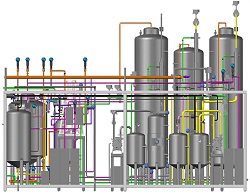 According to new public opinion research commissioned by the Iowa Biodiesel Board (IBB), consumers have a strong awareness of – and favorability towards – biodiesel. The research, conducted in early September, shows 87 percent of Iowans surveyed are familiar with biodiesel. Of those familiar, 74 percent have a positive impression of biodiesel, with just 2 percent saying they have a negative impression.
According to new public opinion research commissioned by the Iowa Biodiesel Board (IBB), consumers have a strong awareness of – and favorability towards – biodiesel. The research, conducted in early September, shows 87 percent of Iowans surveyed are familiar with biodiesel. Of those familiar, 74 percent have a positive impression of biodiesel, with just 2 percent saying they have a negative impression.
Randy Olson, IBB executive director, said the numbers reflect support for biodiesel at a critical time. Congress is hearing opposition from the petroleum lobby to the federal Renewable Fuel Standard (RFS). The policy ensures America’s fuel supply includes renewable fuel.
“Iowa’s Congressional delegation is among the greatest champions of the RFS as sound energy policy, and this polling of their constituents shows their support is well-placed,” Olson said. “We hope the rest of Congress recognizes that poll after poll shows Americans favor renewable, cleaner burning biodiesel.”
Survey respondents identified the top benefits of using biodiesel as:
- Biodiesel is a homegrown fuel and every gallon of biodiesel we use reduces our reliance on foreign oil.
- Biodiesel is made from diverse, renewable resources produced in Iowa.
- Increasing biodiesel use will help create jobs and improve the economy.
“This research reinforces that we are headed in the right direction by diversifying our energy supply, using agricultural innovation and domestic resources to fuel our nation’s vehicles and economy,” said Mark Cobb, IBB chair. Cobb is vice president of Iowa Renewable Energy, based in Washington, Iowa; and president of Cobb Oil, a petroleum distributor based in Brighton, Iowa.
The survey, conducted by Moore Information, consisted of 500 online interviews among a representative sample of registered voters statewide in Iowa.












